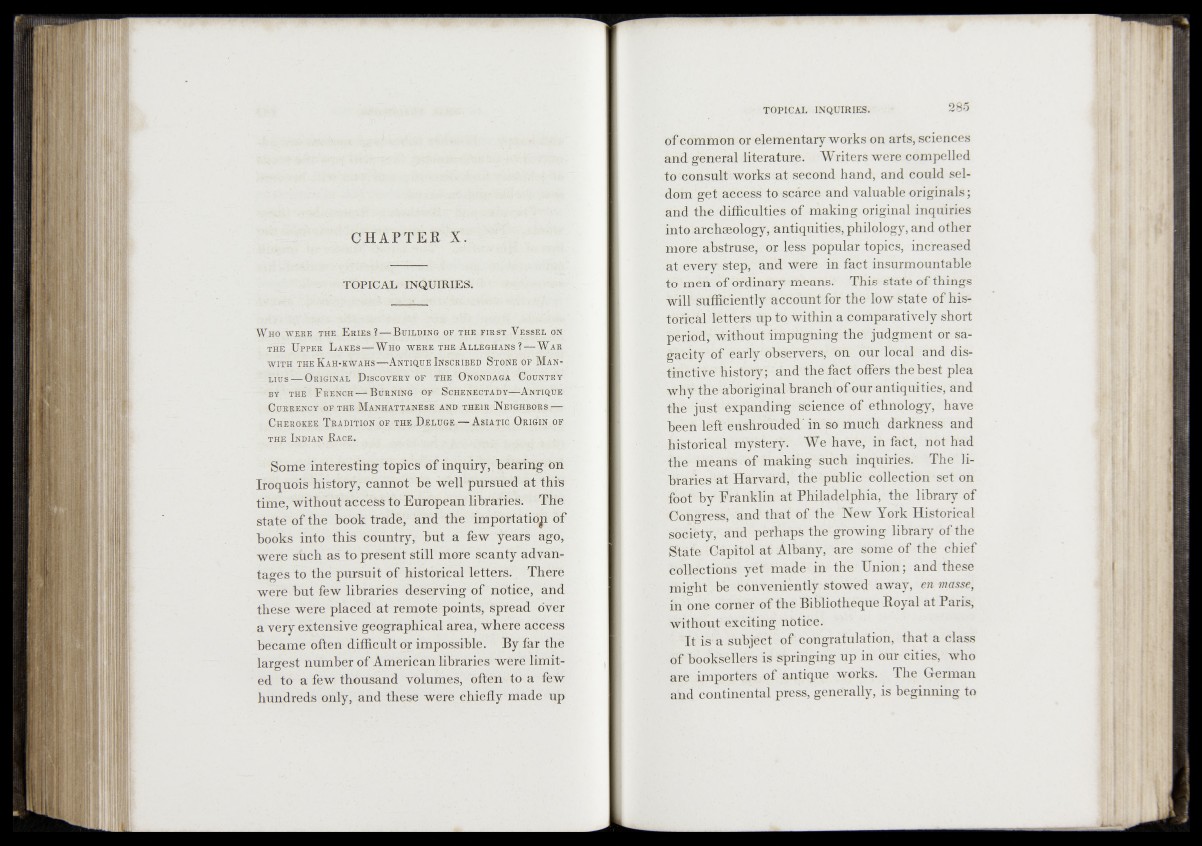
CHAPTER X.
TOPICAL INQUIRIES.
W ho were the E rier,?,— B ulging, of the first iVEssEi on
- THE JjPFER LaKES—'Who .WERE THE
WITH THE KaH-KWAHS— ANTIQUE INSCRIBED J§TONE OF MAN^
MTJS — OlftGINlL D l^b b -m is' of ' THE OI^&NDaWa “’WotntE Y
•"-’inf THisi T rench-7-*Burning -of ~ S®henegtaiJy—A tnticuie
Currency of the ManhattanEse' and their Neighbors»—
Cherokee T radition Jof the J),e m ^ t - A siam& Origin of
the Indian B^ace. ,
Some interesting topics of inquiry, bearing bn
Iroquois history, cannot he well'pursued at this
time, without access'to European libraries The
state of the hook trade, and the importhtioji of
hooks into this country, hut a few ^earS ago,
were shch as to present still more scanty advantages
to the pursuit of historical letters.. There
were hut few libraries deserving of notice, and
these were placed at remote points, spread over
a very extensive geographical area, where access
became often difficult or impossible. By far the
largest number of American libraries were limited
to a few thousand Volumes, often to a few
hundreds only, and these were chiefly made up
of common or elementary works on arts, sciences
and general literature. Writers were compelled
to consult works at second hand, and could seldom
get access to scarce and valuable originals ;
and the difficulties of making original inquiries
into archaeology, antiquities, philology, and other
more abstruse, or less popular topics, increased
at every step, and were in fact insurmountable
to men of Ordinary means. This state of things
will sufficiently account for the low state of historical
letters up to within a comparatively short
period, without impugning the judgment or sagacity
of early observers, on our local and distinctive
history; and the fact offers the best plea
why the aboriginal branch of our antiquities, and
the j«st ^expanding science of ethnology, have
been left enshrouded’ in so much darkness and
historical mystery. We have, in fact, not had
the means of making such inquiries. The libraries
at Harvard, the public collection set on
foot’ by Franklin at Philadelphia, the library of
Congress, and that of the New York Historical
society, and perhaps the growing library of the
State Capitol at Albany, are some of the chief
collections» yet made in the Union; and these
might be conveniently stowed away, en masse,
in one corner of the Bibliothèque Royal at Paris,
without exciting notice.
It is A subject of congratulation, that a class
of booksellers is springing up in our cities, who
are importers of antique works. The German
and continental press, generally, is beginning to